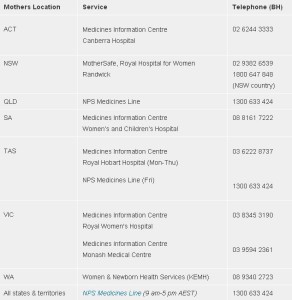Your baby is now a toddler and you discover that you are expecting another baby! Though having a new baby is always exciting, you will probably also worry about how you will be able to manage the two. Luckily, there are tips you can follow to make things easier for you and the whole family. Below are some ideas that worked for other families.
Finding out that you are pregnant
Most mothers inform toddlers of their pregnancy soon after finding out. However, saying that there’s a new baby inside your tummy won’t probably mean much to a toddler. Try looking at magazines or books of pregnant women and explain to her that the woman in the image has a nice tummy because there’s a baby growing inside her and that you too will have a round tummy soon because there’s also a baby growing inside you. Try to mention it to your toddler often even if she doesn’t really understand.
If you have a toddler that is still breastfeeding, there is no need for you to stop. If you want to wean your toddler because of your pregnancy, it is recommended to do it slowly. For advice on breastfeeding while pregnant please speak to your maternal and child health nurse or doctor.
Though being pregnant the second time around can be as exciting, it can also come with some different challenges. Less stressful, at least, since by now you already know how to properly prepare for the coming of your second child, however you will need to start thinking about the kind of adjustments you have to make. Will your toddler move out of her cot and into a bed? Will you be entrusting her to a relative or a friend when the new baby is born? Or will she be attending day care?
Aside from the adjustments you have to make at home, you also need to think about the birth. Would you like your child to be present when you’re giving birth? Do you think your toddler can cope when he sees you in pain and with lots of people around? Or will be you leaving your toddler with someone? If yes, who will that someone be? Needless to say, if it’s a family member or friend, your toddler needs to feel safe and comfortable around that person before you decide to leave them alone.
How to introduce your toddler to their sibling
Toddlers are naturally wary of people they don’t know. Though some toddlers may bond with the baby immediately, some toddlers will expect that the baby will not stay. If you want your toddler and your new baby to bond immediately, many mothers recommend that you do tandem breastfeeding. Keep in mind that your toddler may get jealous to find a new person who is constantly with you. You may first want to introduce your baby to your toddler at the hospital or at the house of a relative and then let them know that you will be bringing the baby home.
Another tip to help your toddler welcome the new baby is by giving a gift from your baby to your toddler. By doing so, you make their meeting more special and give the toddler something to play when he gets bored.
The first few days
Just like on your very first pregnancy, getting to know your baby is exciting yet very tiring. With your first child, you don’t have to worry about anyone but them, but now everything is different and you also have to worry about your toddler as well.
Handling two children alone can be very difficult. Ask your partner if he can take some time off his work and spend time with your toddler and your baby. By doing so, you all bond together and you help your toddler get used to your new baby. Other family members can also care for your newborn while you are playing with your toddler or care for your toddler when you are spending some time with your newborn.
Most toddlers also love to help and be involved with what’s going on. Ask your cute toddler to bring the items you need to bathe your baby. Make sure that you let your toddler feel how much you appreciate their help. Also, another way for your toddler to get used to the new baby is by asking him to introduce guests to his new baby brother or sister. You may also want to ask your relatives or friends to give a gift to your toddler so he does not feel left out when they visit your new baby.
When you are breastfeeding, it is important that you make your toddler busy. Before breastfeeding your baby, give your toddler a toy, a book, or a DVD. Something that will keep him busy while you breastfeed your baby. Ensure that your toddler also has something to eat or drink so he won’t interrupt you when you are already breastfeeding your baby.
Make sure to get enough sleep and rest
Your toddler and your new baby need you. Don’t let yourself be extremely tired or you might get sick. If both your children are sleeping, take advantage of that and get some rest too. Don’t hesitate to ask your partner if he can do the chores while you get your well deserved rest.

